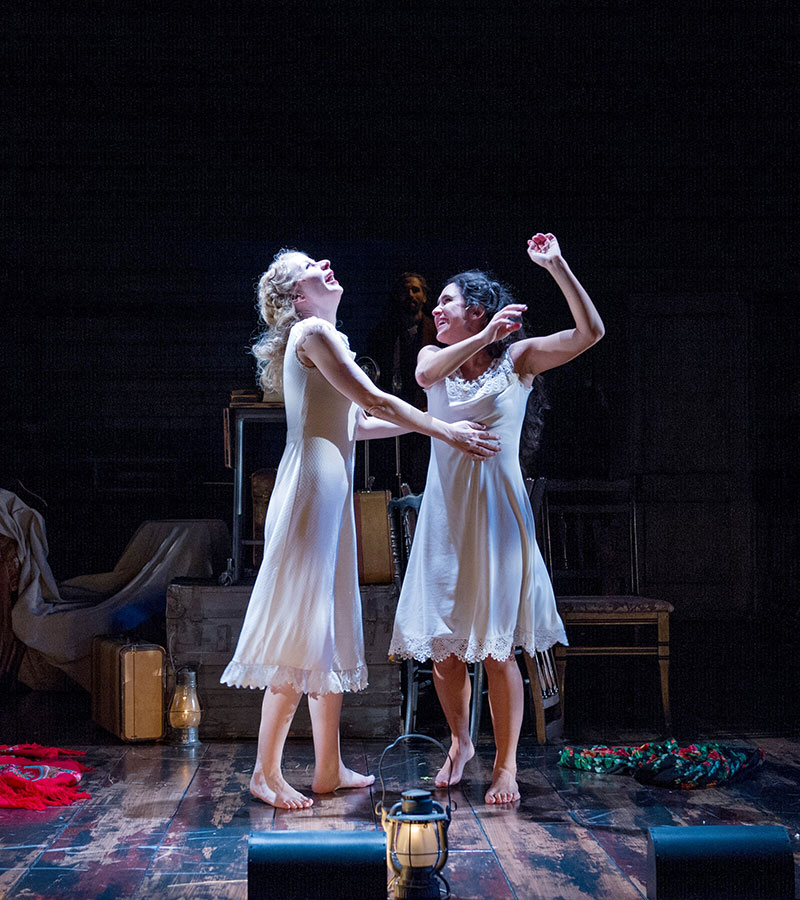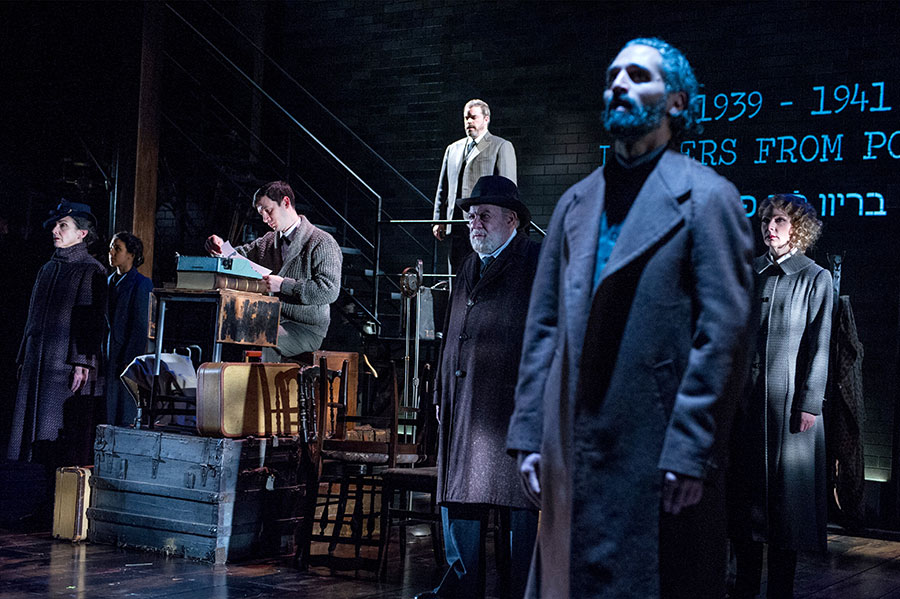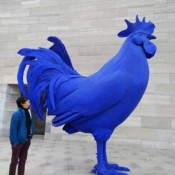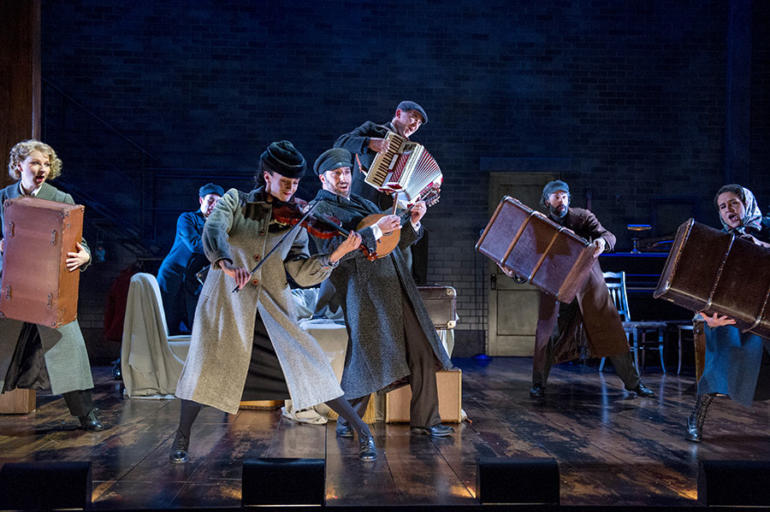It’s always fascinating to watch a film about a film or see a play about a play. There’s something meditative in the meta-ness of exploring a medium, using that same medium.
In her play “Indecent” Paula Vogel focuses on the work of Polish-Jewish playwright Sholem Asch who wrote “The God of Vengeance” in Yiddish in the 1920s.
Ahmad Coo is a producer and copy editor for the Global Business show on CGTN America. His analysis represents his views alone.
Vogel details Asch’s struggles in trying to bring his play to the stage. At the time “The God of Vengeance” was considered blasphemous and controversial due to its depiction of a love scene between two women and the impropriety of a central character who makes a living running a brothel, but is a devout jew. The character’s family disintegrates after his plans to find a husband for his daughter falls apart because his daughter falls in love with one of the prostitutes in his brothel.
After success in Europe, Asch translated the script into English and brought “The God of Vengeance” to U.S. audiences on Broadway. But it only ran for six weeks before the entire cast was arrested for obscenity.
“Indecent” deftly highlights the passion and anxiety of creative people who face danger when practicing their art, and their dogged persistence against compromising their vision.
Vogel took some liberties with how Asch came to write “The God of Vengeance” by changing some names and stretching details, but “Indecent’s” characters represent real people who suffered for their art.

(L-R) Susan Lynskey (The Middle: Halina/Ensemble) and Emily Shackelford (The Ingenue: Chana/Ensemble), with Ben Cherry (Lemml) in background, in Indecent running November 23 through December 30, 2018 at Arena Stage at the Mead Center for American Theater. Photo by C. Stanley Photography.
While the dates may differ, the production of “Indecent” and “The God of Vengeance” take place in worlds that have shifted from tolerant to increasingly oppressive, racist, and bigoted.
Asch’s play rose to fame in the early 20th century, but then faced growing intolerance and Anti-Semitism in Europe and theaters began shunning the production.
Though Nazism and the Holocaust is not mentioned in “Indecent”, Vogel skillfully weaves their menace through subtle allusions and sudden explosions of sound. That feeling of doom steadily grows throughout the production and by the tragic end, the play takes a claustrophobic feel.
But “Indecent” isn’t solely about the tragedy and the terror the Jewish diaspora experienced, it’s also about the power of art and how it can be a source of hope for the oppressed.
At the end of Vogel’s play the producers of “The God of Vengeance” are reduced to staging their play in attics and small rooms in homes to avoid capture by the Nazis. But it’s obvious that escape isn’t possible as World War II begins to rage uncontrollably in the early 1940s.
In the last scene of “Indecent”, we see the actors and producers in a concentration camp as they await await their fate. But even in the face of certain annihilation, the artists refuse to give up hope. In their last few moments on earth, Vogel imagines them staging the most hopeful moments of “The God of Vengeance”.
The image made me think of Russian novelist Aleksandr Solzhenitsyn’s “Gulag Archipelago” a masterpiece that details his experiences in the Soviet prison system. Many of those imprisoned were writers, poets, musicians, and artists, but they were forbidden from doing anything creative. Yet it was their love of art that allowed them to survive death and madness.

The cast of Indecent in Indecent running November 23 through December 30, 2018 at Arena Stage at the Mead Center for American Theater. Photo by C. Stanley Photography.
During his eight-year stay in the gulag to be “reeducated”, Solzhenitsyn composed poems and plays in verses on small scraps of paper. To avoid being caught with them, he committed his writings to memory. At one point he claimed to have memorized some 12,000 lines of poetry. He also wrote about a prisoner that spent countless hours playing an imaginary piano on the floor of his cell, writing out concertos in his head.
In the final few scenes of Vogel’s tear-jerker we find the main characters of “Indecent” hanging on to the last vestiges of their art in an act of defiance against the Nazis and their encroaching terror.
Art is often our only salvation from tyranny.
“Indecent” is playing at Washington D.C.’s Arena Stage through December 30, 2018.
 CGTN America
CGTN America
 The cast of Indecent in Indecent running November 23 through December 30, 2018 at Arena Stage at the Mead Center for American Theater. Photo by C. Stanley Photography.
The cast of Indecent in Indecent running November 23 through December 30, 2018 at Arena Stage at the Mead Center for American Theater. Photo by C. Stanley Photography.

